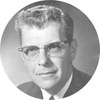
Answering Objections to Catechism Preaching Part 4
The following article has been adapted from the 1986 edition of the Mid-America Journal of Theology.
Let us listen to one last objection raised repeatedly—does not the Heidelberg Catechism omit many significant parts of the Bible? What of the history of the children of Israel as preparation for the coming of the Lord Jesus Christ in the fulness of time? How about the many prophecies in the Old and New Testament that should serve as instruction, warning, and consolation for us today? And are not the parables and miracles of our Lord, none of which are included in this creed, part of that instruction which God has provided for our edification?
To state the issue simply: have not the Reformed churches made themselves guilty of adopting "a canon within the canon" by mandating catechetical preaching according to this prescribed pattern?
The answer can be relatively simple and, hopefully, straightforward.
First of all, the aim of this catechism is not to outline and comment on every portion of Holy Writ. Demanding this would defeat the very purpose for which it was composed. It seeks rather to provide, and that also by being used year after year, that elementary (which is something other than simplified or childish) instruction in the basic, indispensable "doctrine which is according to godliness" (KJV). Here it does not deal selectively with Scripture to include what its authors liked and exclude what they disliked. Conscientiously they attempted to survey and summarize all that the Bible had to say about those doctrines which are necessary to know and worship and serve God in all things according to his Word.
This becomes irrefutably clear when we carefully review the texts from which the answers are drawn.
The composers, competent theologians as they indeed were, showed their deep concern for the congregations. People in their day were in dire need of instruction in the Christian faith. For centuries the Bible had remained a closed book even to many parish priests. Now, because of the invention of movable type, it could be placed in the hands of everyone able to read. Soon contradictory interpretations began to disturb and destroy the peace of the churches. To stem this growing discord Elector Frederick set Ursinus and Olevianus to work on a catechism in all things conformable to Scripture. For far too long had some passages been played out against others.
Without some pattern the Bible would remain a confused mass of passages for most people. Hence the need for a kind of "system." And here, as demonstrated earlier, the authors chose one which harmonized with the chief aim of Scripture itself and, at the same time, directly addressed the basic needs of the people. Hence the stress on "comfort."
Salvation, so it was affirmed, again and again, came as God's free gift of grace in Jesus Christ through the work of the Spirit who alone can apply the Word savingly to heart and life. But this was not thought of as some purely personal and mystical experience. It was received, enjoyed, and enriched within the fellowship of those believing communities where the Word was faithfully and fully preached. By it, as the very voice of God, men and women and children were summoned to faith. Rich and poor, old and young, learned and unlearned alike might never regard themselves as exempt from it and its claims upon their lives. Thus throughout this catechism, the ongoing interchange between "I," "me," and "my" with "we" and "us." Nor might, as not a few did in those days, law and gospel. Old and New Testament, faith and works, be sharply sundered from each other. For patriarchs and prophets, as well as for people in their times, the authors insisted that in Christ Jesus believers were not only reconciled and redeemed; they were also by God's grace renewed to walk in his ways. This, so they who wrote and those who endorsed the Heidelberg Catechism, was the clear, consistent teaching of Scripture.
Hence the many "texts" ranging from Genesis to Revelation. These constituted an integral part of this manual for instruction.
Large numbers, to be sure, were drawn from the several epistles of the New Testament. But many were also selected from the historical books; others from the Psalms, Proverbs, and prophetic writings. All had to be carefully studied in their respective settings by pastors preparing their sermons and then assimilated into the messages heard from the pulpits. In this way, the voice of the Lord was to be proclaimed.
How this can be more effectively done than sometimes appears to be the case will be considered later. But the avowed aim of including so many specific references was that of instilling in the minds and hearts of all who listened that God was speaking authoritatively, comfortingly, and challengingly.
Let us not forget that far more historical material is enunciated in this little book than many are willing to admit. It speaks about creation, man in Paradise, the instigation and devices of the devil, the fall of our first parents, and the consequences of that disobedience for all mankind. Nor will any right-thinking person ignore the profound affirmation of the unity of Old and New Testament outlined in Lord's Day 6, Q & A 19. Repeatedly, it also addresses our life situations in light of God's dealings with people in the days when his special revelation was first proclaimed. We read of "barren and fruitful years" as well as of "riches and poverty," "sickness and health," and life and death as governed by his almighty and all-wise hand. By all these references drawn from the wells of nearly every Bible book, we may now learn how by grace we can live joyfully before God's face.
That this catechism speaks in such detail and at such length about the person and work of the Lord Jesus Christ ought to occasion no surprise. He has brought salvation in the events of his life, death, and resurrection. This is to be experienced as "the knowledge of the truth that leads to godliness—a faith and knowledge resting on the hope of eternal life, which God, who does not lie, promised before the beginning of time; and at his appointed season he brought his word to light through the preaching ..." (Titus 1:1b-3a).
This follows the order of the Apostles Creed, that summary used for centuries to summon all who hear to appropriate "the facts and mysteries" of the gospel unto salvation.
Does the catechetical sermon or even a series of such sermons say everything about God's ways with mankind that can and must be said? No, no more than can any series of sermons on isolated texts and passages. The Word, so Reformed believers confess, can be adequately but never exhaustively preached. But where catechetical preaching is properly done, pastors and people may be assured that no central affirmations are neglected to the spiritual impoverishment of those who have come to be fed.
Or do Reformed churches insist that only such sermons have legitimacy in an evangelical pulpit? Far from such a notion. Rather, from the beginning, their church orders have required that services for divine worship, in which the sermon always takes precedence over all else, shall be held "at least twice on every Lord's day." In other services, also those held during the week and on the Christian festivals, every preacher is free to choose as "texts" for his sermons those not dealt with directly or in-depth by this catechism. But even in such sermons, a sound biblical creed renders invaluable service to every preacher who wants to be faithful to the Bible.
In the light of spiritually sensitive catechetical sermons, much of the unity and variety found in the Bible begins to stand out clearly and convincingly. It helps to introduce the hearers again and again into what, for so many, also in this time of conflicting ideologies and paralyzing temptations, seems to be for them "the strange new world of the Bible." You see, even in such messages, there is much room to engage in narration. What we are to believe and how we are to live is deeply embedded in that greatest of all stories, which span the entire Scriptures, the story of the marvelous grace of God for a wayward and wicked world.
By opening up the Word, under the Spirit's impulses who always works with the Word, God's people need never feel lost and alone in an alien world. We recognize ourselves as belonging in the company of Adam and Abraham, the prophets and the apostles, and the saints of all ages. With them, we learn to rejoice in "one Lord, one faith, one baptism, one God and Father of all, who is over all and through all and in all" (Eph. 4:5).
So explained and applied, this catechism is a confession that produces a truly confessing congregation. As a gentle guide, it leads us into the storehouse of God's truth, which feeds to life everlasting. It tells us where we stand with all who believe in the Lord Jesus Christ. It binds the very words of Scripture upon our hearts so that with lip and life, we are "always prepared to give an answer to everyone who asks .... the reason of the hope" (1 Peter 3:15b), which is ours. Without that kind of response, we are not a church in which our God delights.
That much more is required here than a purely intellectual response to "the good news of great joy" does deserve to be stressed. The danger of over-intellectualizing the gospel is just as threatening to sound spirituality as making it little more than a matter of emotions or the will. True confessing is ever the offering up of ourselves totally to the triune God of the covenant for his praise and service. His ways with us in Christ Jesus enable us to know him rightly and stir us to live in all things according to his will. That the Heidelberg Catechism, by setting before our minds and hearts so many "texts," never wearies of emphasizing.
Since catechetical sermons often seem to fall far short of this avowed aim, we do well to listen to what Van Til has said about the act of "confessing."
So much that passes for Christian testimony in today's world is shallow. We say so little to ourselves and others because we still know and believe and, with heartfelt conviction, respond to so little of the fulness of God's speaking to us through his Word. Out of this impasse, catechetical preaching seeks to help us. Hence Van Til's comments in The Triumph of Grace: the Heidelberg Catechism:
"The believer's act of confession is first and above all else a religious act. It is an act of prayer and adoration. It is not a system of philosophy. It is not even a system of Christian philosophy. Nor is it a system of dogmatic theology. It is an act in which all the members of the congregation can participate."
And agreeing wholeheartedly with this, we who are Reformed also insist with the writer that "Any intelligible revelation and any intelligible response to revelation involves conceptual response on the part of the person making this confession."
These statements deserve many repetitions in our days of anti-intellectual, anti-doctrinal, and anti-creedal propaganda. Truth, as it comes to us from the lips of God, is always meaningfully communicated. Such is true even when it is despised. It is never simply a "happening" that somehow may or may not stir the soul. It has been put into words that say what God says and mean what God means. Despite all the nuances found in biblical terms for "to know," none are devoid of a large measure of intellectual content to be apprehended and appropriated. This was the conviction of those who penned our catechism. It is still the conviction of those who would use this "sum of doctrine" to proclaim God's peace to the ends of the earth.
Without such a view of God's truth and his intended purposes, the church can no longer communicate the gospel.
Without it, preachers might as well stammer or stand tongue-tied in their pulpits.
Without it, we have nothing meaningful to say to ourselves, each other, or, for that matter, to a world that lies wallowing despite all its activities in darkness and despair.
Confessional Reformed churches call for confessing people who know what they believe and are eager to articulate this in word and deed.
To that end, unsatisfied with having people content themselves with quoting an occasional text or two, they seek without apology to "indoctrinate" all who hear in the "whole will of God." For this task, so they remain convinced, their catechism springing from God's very word and words still serves them well. It doesn't say all that needs saying. Occasionally it may not even say everything it says as well as it, perhaps, could be said. But what it does say are "those things most surely to be believed." As a servant of the Word, it enables men, women, and even children to "grow in the grace and knowledge of our Lord and Savior Jesus Christ" (2 Peter 3:18). And that is what being the church in today's world is about.


P.Y. De Jong (1915-2005) was one of the founding members and former professor at Mid-America Reformed Seminary.
Recent articles




